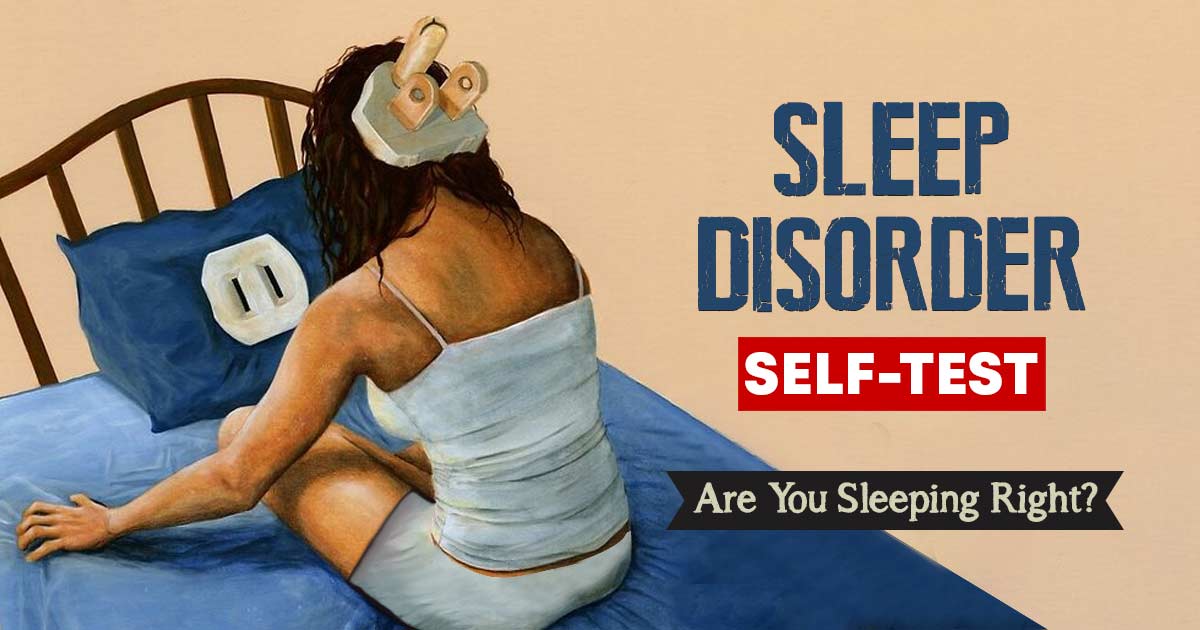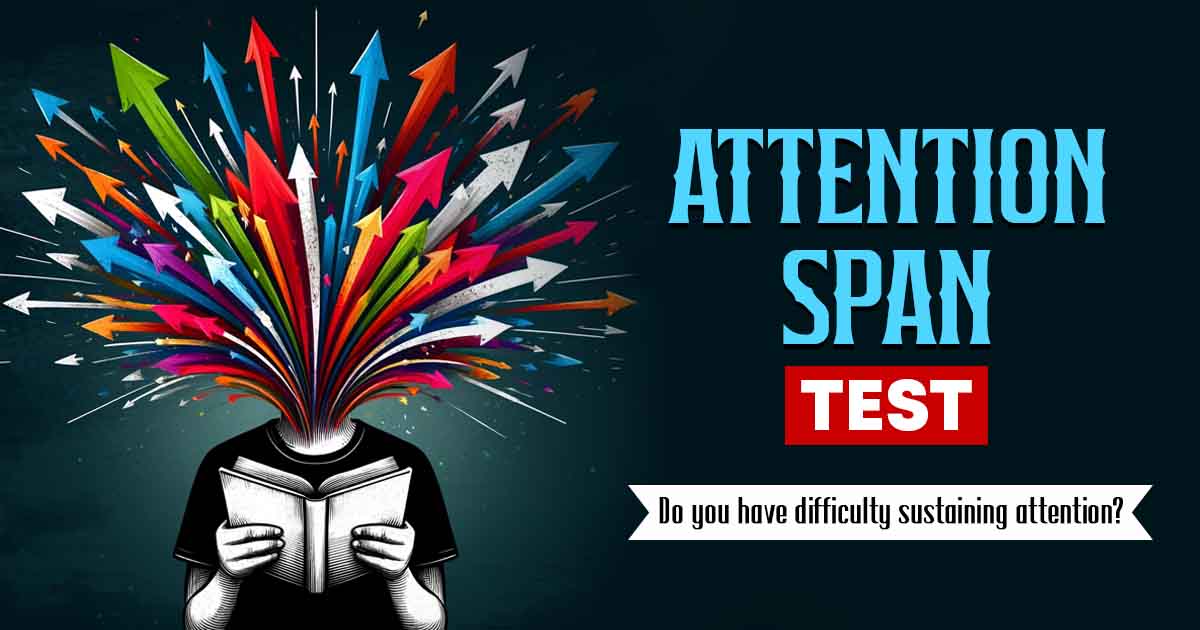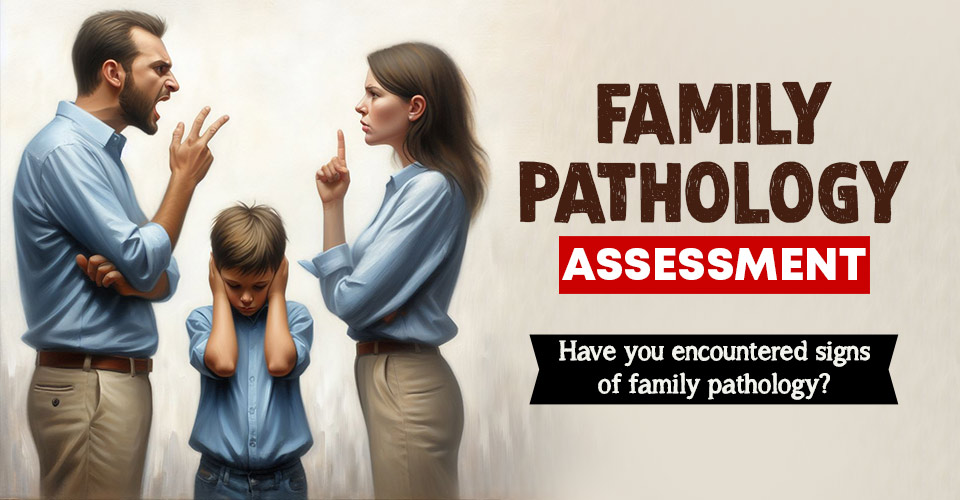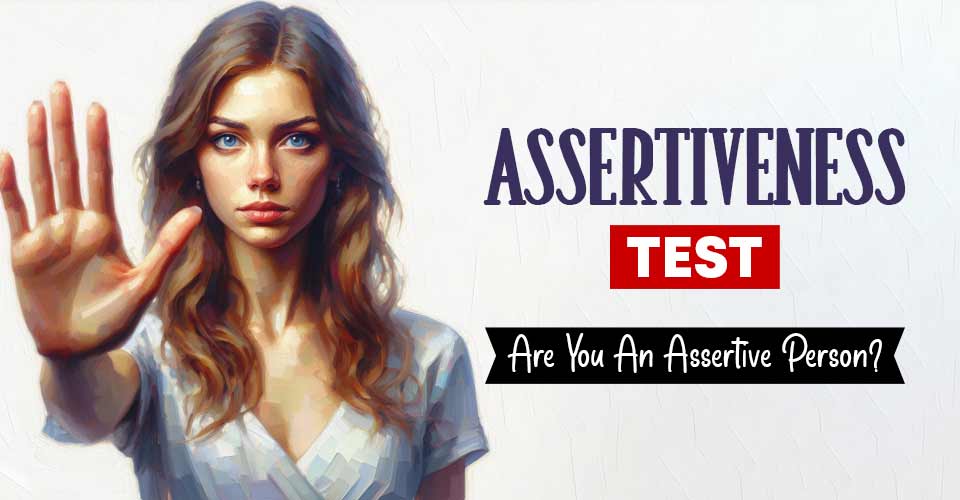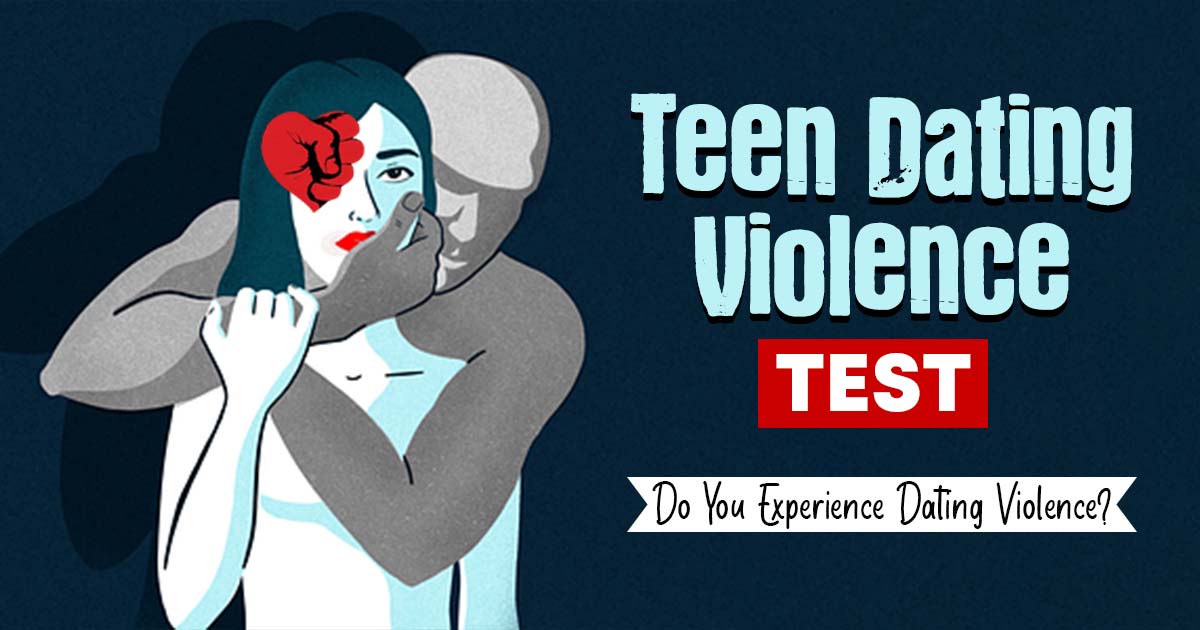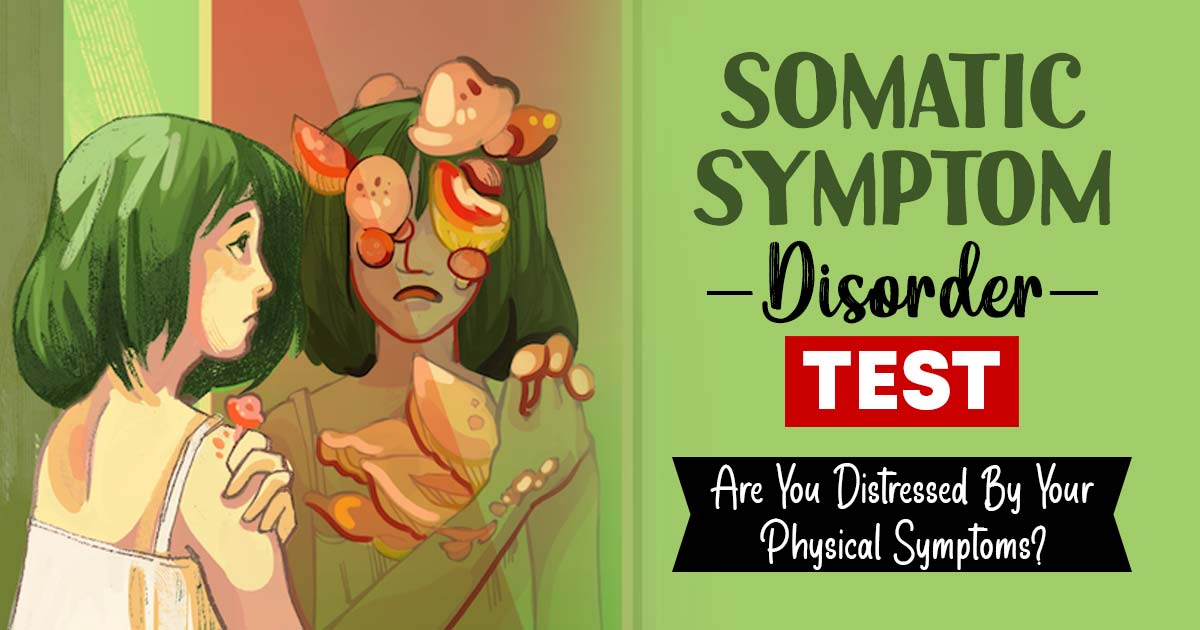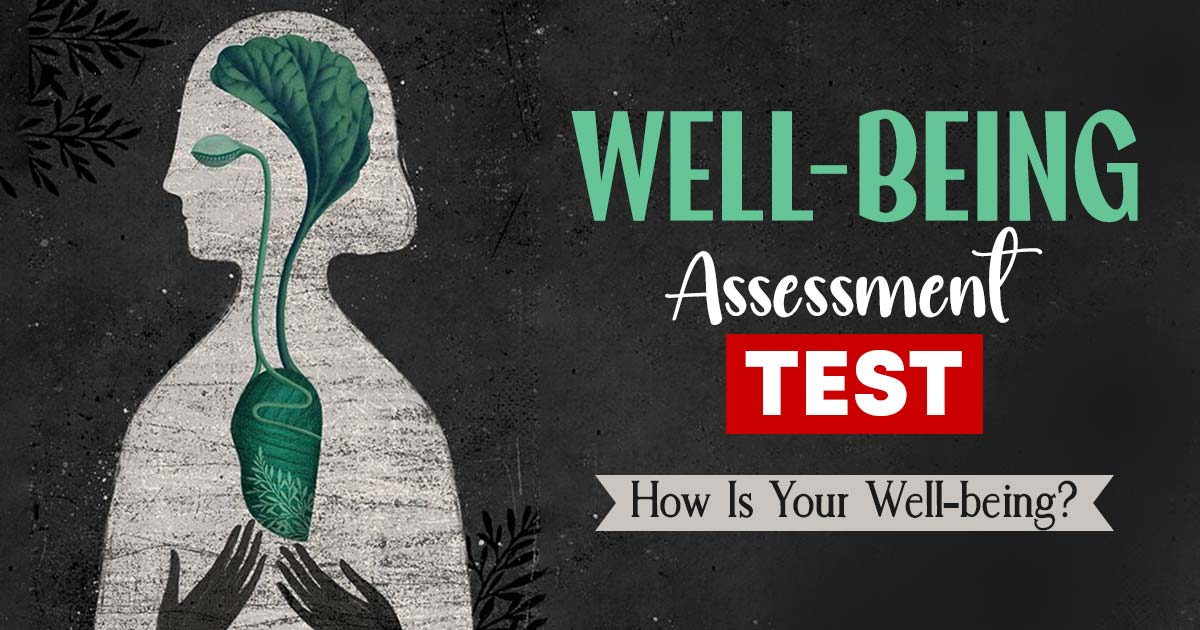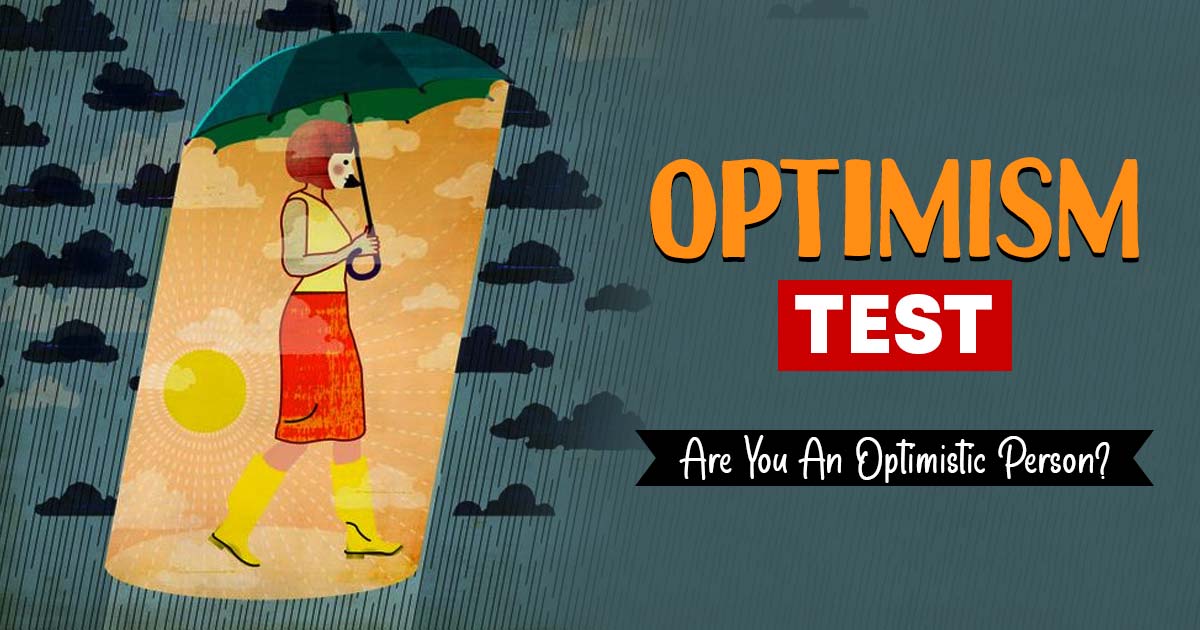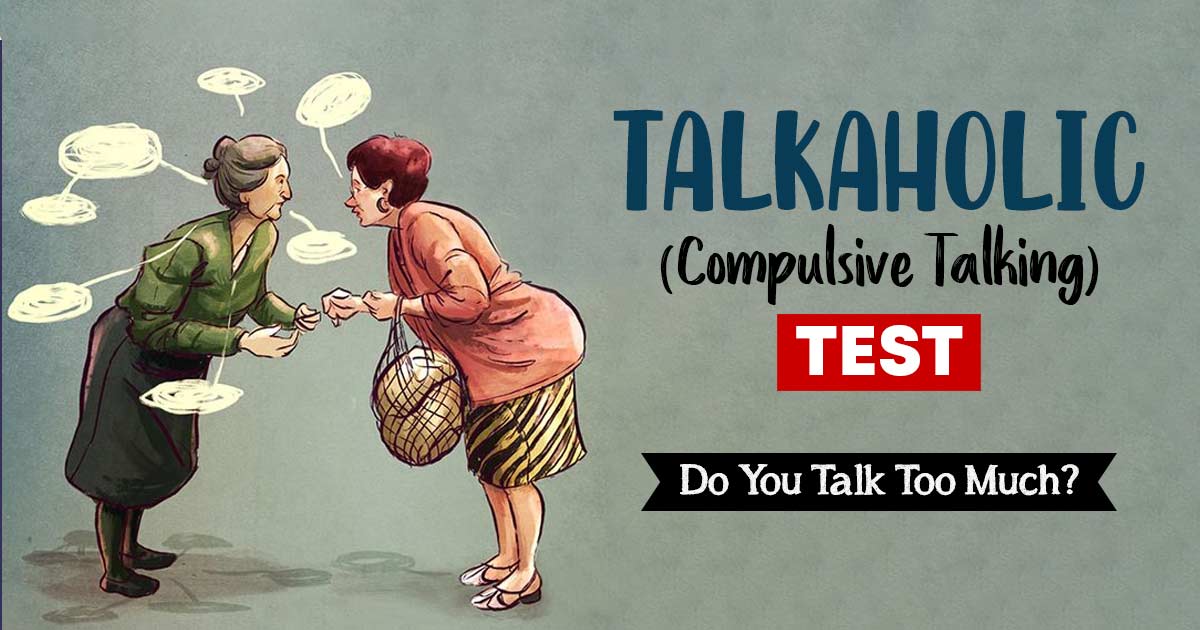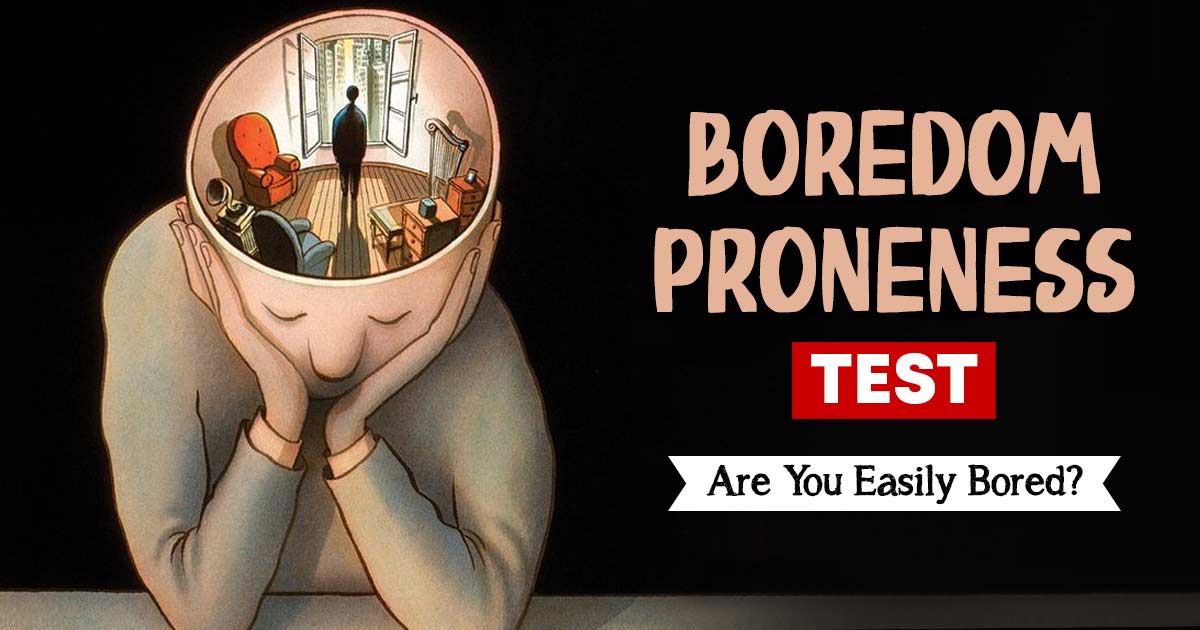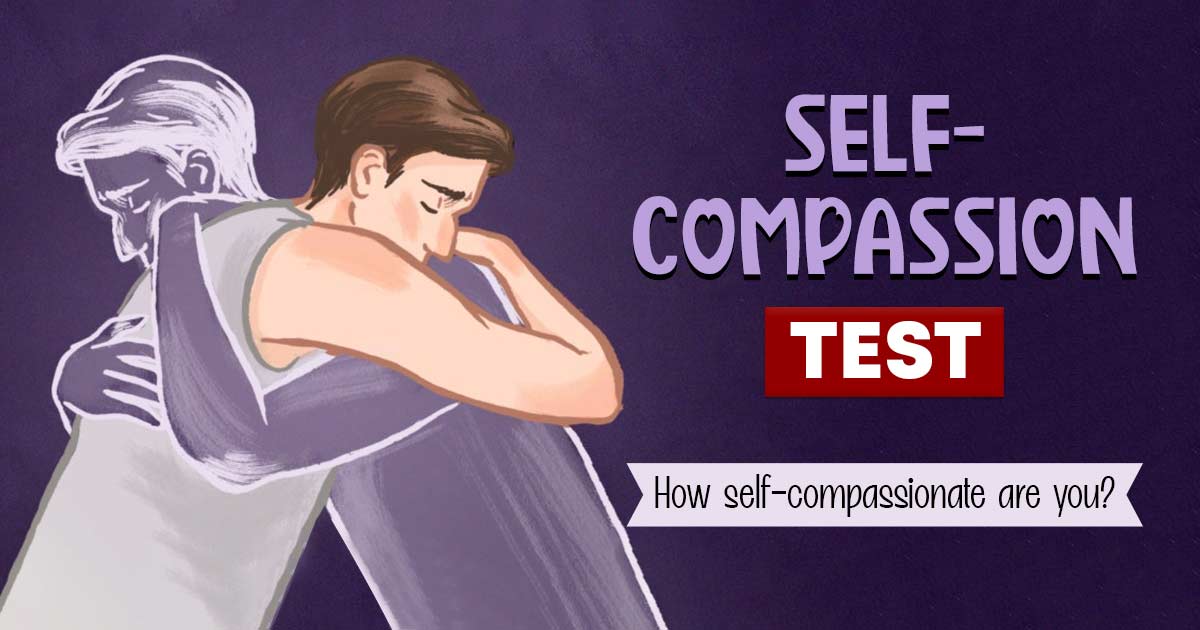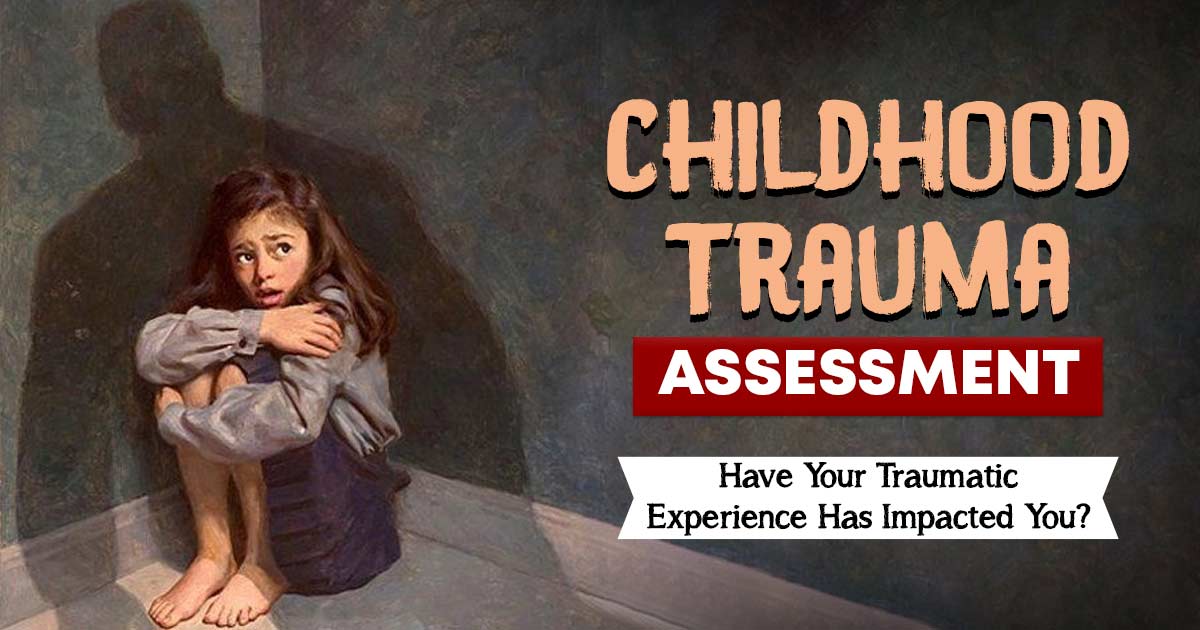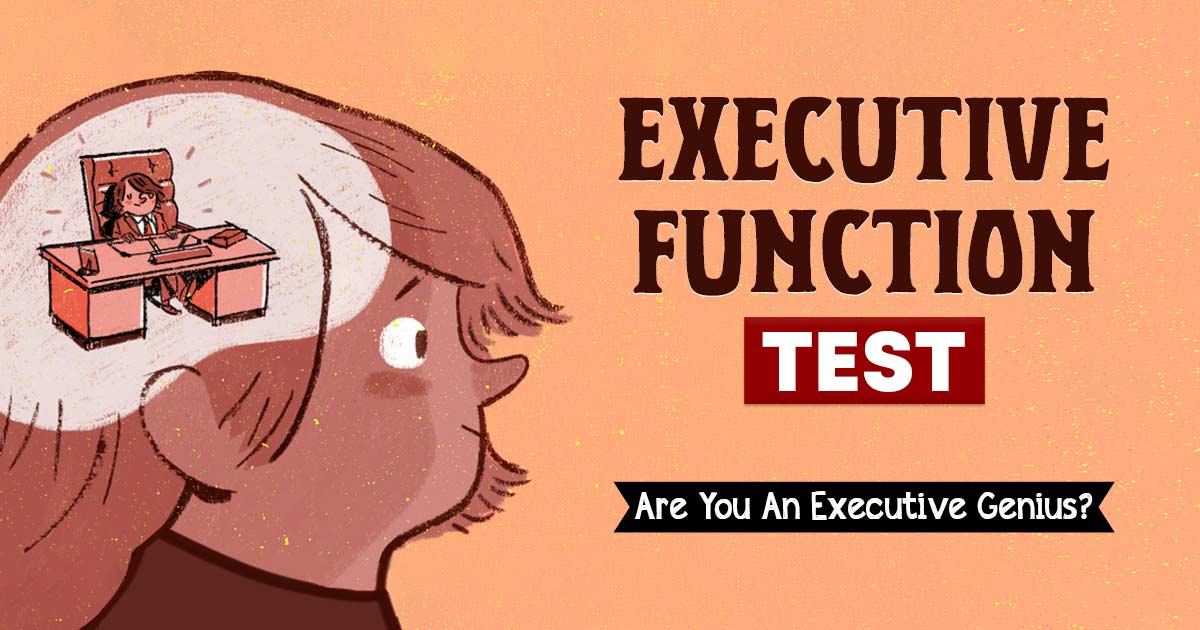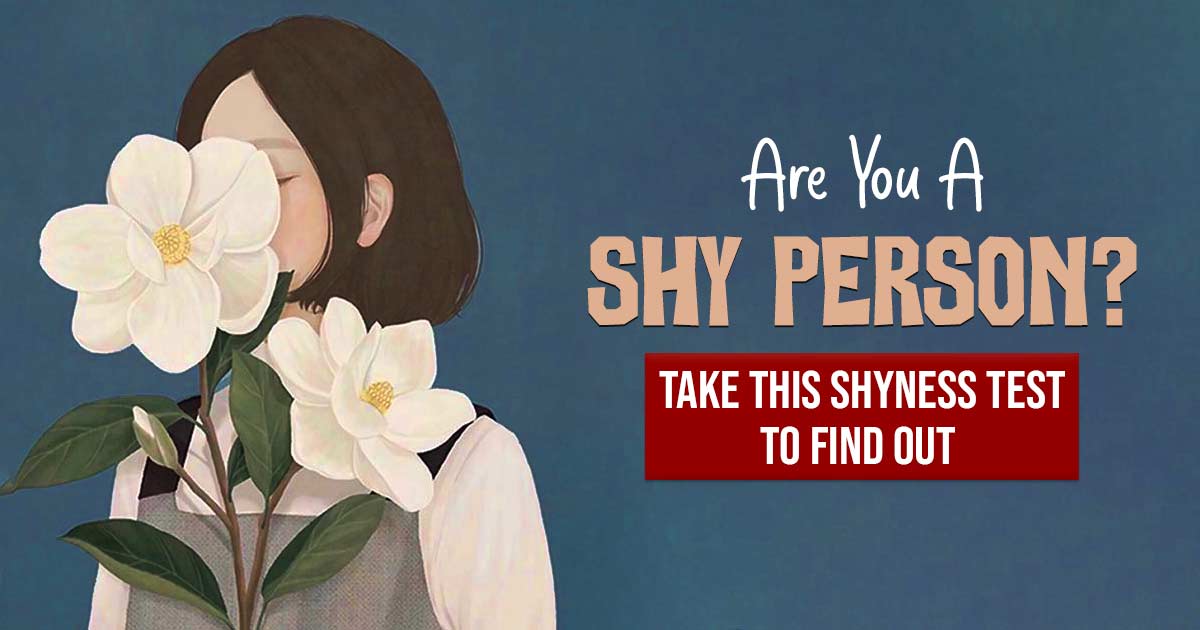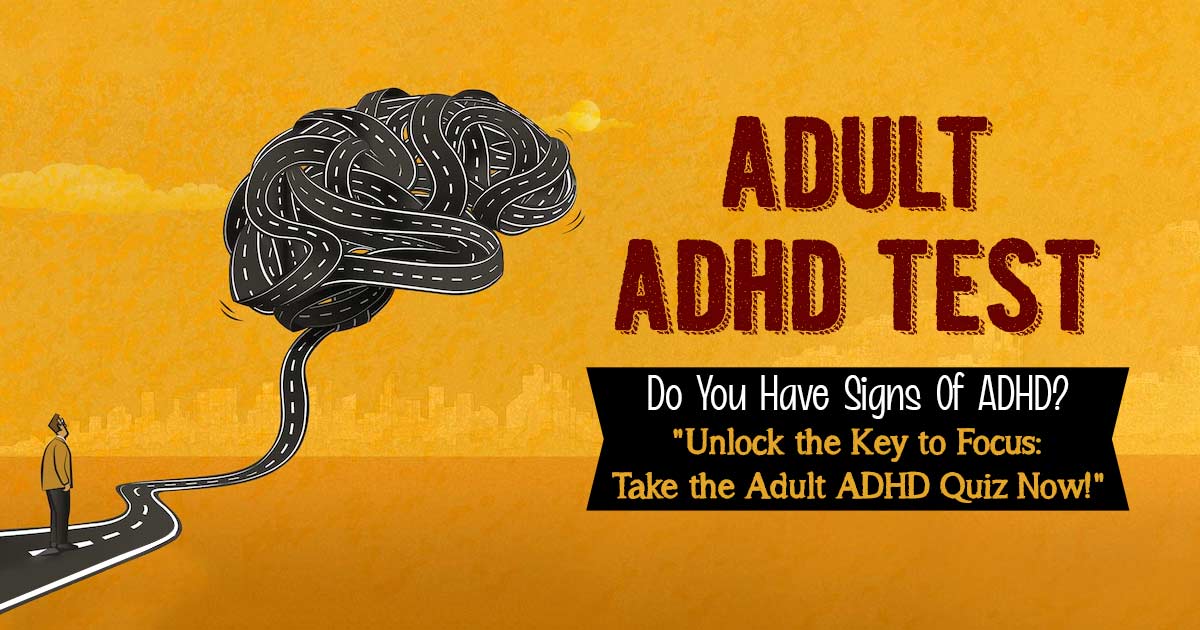Do you feel difficulty falling asleep? Or wake up frequently at night? Do you feel tired even after a restful night’s sleep? Does your daily lifestyle disrupt because of your sleeping patterns? Take this sleep disorder test to determine whether you have signs of Sleep Disorder.
What is Sleep Disorder?
Sleep disorders are conditions that result in impairment in the quality, timing, and amount of sleep, which disrupt the daily lifestyle of an individual.
In DSM- Sleep Disorders are categorized into 3 types, as-Insomnia, Hypersomnia, and Arousal disorder, among which insomnia is the most common. Other sleep-wake disorders include obstructive sleep apnea, parasomnias, narcolepsy, and restless leg syndrome.
Sleeping difficulties are associated with an individual’s physical and emotional health. Lack of proper sleep can lead to difficulties in concentration, poor anger management, lack of interest and energy at work, and risk of other mental and physical health disorders. Research revealed that sleep deprivation affects both men and women equally.
Instructions For Taking Sleep Disorder Test
Below is a list of questions that relate to life experiences common among people with signs of Sleep Disorder. Please read each question carefully, and select the answers that suggest how often you have experienced the same or similar challenges in the past few months.
Please note: This Sleep Disorder Assessment is a self-assessment and not a diagnostic test.
Assessment Summary
0 of 20 Questions completed
Questions:
Information
You have already completed the assessment before. Hence you can not start it again.
Assessment is loading…
You must sign in or sign up to start the assessment.
You must first complete the following:
Results
Results
Your time:
Time has elapsed
You have reached 0 of 0 point(s), (0)
Earned Point(s): 0 of 0, (0)
0 Essay(s) Pending (Possible Point(s): 0)
Categories
- Mental Health Assessment 0%
-
No Signs of Sleep Disorder
Your score indicates that you have no significant signs of Sleep Disorder. Your response reveals that you do not have any such sleeping difficulties and you seem to maintain proper sleep hygiene. You also seem to show no such symptoms as restlessness, anxiety, or nightmares during your sleep. Your response also shows that you do not face any such difficulties throughout the day because of a lack of proper sleep.
However, it should be noted that this is just a basic screening tool and not meant for proper medical diagnosis. If you think the results do not accurately represent your thoughts and feelings, then we would encourage you to consult a mental health professional for accurate diagnosis and treatment.
Want to learn more?
Treatment of Sleep Disorder generally involves a combination of medication with Cognitive Behavioural Therapy. This treatment aims to help clients recognize, challenge, and reduce stress-inducing thoughts that prevent the person from adequate sleep. Practicing proper and regular sleep hygiene also helps in improvising a proper sleep pattern. However, acknowledging your mental health signs and seeking help and support can lead you to change your situation. If you want to know how to seek help for yourself or help someone who you suspect to have signs of Sleep Disorder, talk to our psychologists to better understand what you can do to recover from it. Disclaimer: The sleeping difficulties would be diagnosed as a disorder, only when symptoms would occur at least three nights/day a week for at least three months and would cause significant distress in social, occupational, personal, and other areas of daily functioning.
You can use our Mood Tracker to stay mindful of your mood every day, identify your innermost thoughts & emotions on a daily basis. It will aid you in doing all those things you love, while limiting activities that might dampen your mood.
-
Low Signs of Sleep Disorder
Your score indicates that you have low significant signs of Sleep Disorder. Your response reveals that you might have slight sleeping difficulties that disrupt your proper sleep hygiene. You also seem to show slight symptoms such as restlessness, anxiety, or nightmares during your sleep. Your response also shows that you might seem to have a few concentration problems, irritability, and drowsiness throughout the day because of a lack of proper sleep. Your response also seems that your sleep pattern might break down in the middle of your sleep schedule and you might show a few difficulties in waking up after your sleep is over.
However, it should be noted that this is just a basic screening tool and not meant for proper medical diagnosis. If you think the results do not accurately represent your thoughts and feelings, then we would encourage you to consult a mental health professional for accurate diagnosis and treatment.
Want to learn more?
Treatment of Sleep Disorder generally involves a combination of medication with Cognitive Behavioural Therapy. This treatment aims to help clients recognize, challenge, and reduce stress-inducing thoughts that prevent the person from adequate sleep. Practicing proper and regular sleep hygiene also helps in improvising a proper sleep pattern. However, acknowledging your mental health signs and seeking help and support can lead you to change your situation. If you want to know how to seek help for yourself or help someone who you suspect to have signs of Sleep Disorder, talk to our psychologists to better understand what you can do to recover from it. Disclaimer: The sleeping difficulties would be diagnosed as a disorder, only when symptoms would occur at least three nights/day a week for at least three months and would cause significant distress in social, occupational, personal, and other areas of daily functioning.
You can use our Mood Tracker to stay mindful of your mood every day, identify your innermost thoughts & emotions on a daily basis. It will aid you in doing all those things you love, while limiting activities that might dampen your mood.
-
Moderate Signs of Sleep Disorder
Your score indicates that you have moderate significant signs of Sleep Disorder. Your response reveals that you might seem to have some sleeping difficulties that disrupt your proper sleep hygiene. You also seem to show some of the symptoms such as restlessness, anxiety, or nightmares during your sleep. Your response also shows that you might seem to have concentration problems, irritability, and drowsiness throughout the day because of a lack of proper sleep. Your response also seems that your sleep pattern might break down in the middle of your sleep schedule and you might show some difficulties in waking up after your sleep is over. This also reveals that your sleeping pattern might seem to affect some functioning of your daily life.
However, it should be noted that this is just a basic screening tool and not meant for proper medical diagnosis. If you think the results do not accurately represent your thoughts and feelings, then we would encourage you to consult a mental health professional for accurate diagnosis and treatment.
Want to learn more?
Treatment of Sleep Disorder generally involves a combination of medication with Cognitive Behavioural Therapy. This treatment aims to help clients recognize, challenge, and reduce stress-inducing thoughts that prevent the person from adequate sleep. Practicing proper and regular sleep hygiene also helps in improvising a proper sleep pattern. However, acknowledging your mental health signs and seeking help and support can lead you to change your situation. If you want to know how to seek help for yourself or help someone who you suspect to have signs of Sleep Disorder, talk to our psychologists to better understand what you can do to recover from it. Disclaimer: The sleeping difficulties would be diagnosed as a disorder, only when symptoms would occur at least three nights/day a week for at least three months and would cause significant distress in social, occupational, personal, and other areas of daily functioning.
You can use our Mood Tracker to stay mindful of your mood every day, identify your innermost thoughts & emotions on a daily basis. It will aid you in doing all those things you love, while limiting activities that might dampen your mood.
-
Severe Signs of Sleep Disorder
Your score indicates that you have severe significant signs of Sleep Disorder. Your response reveals that you might seem to have strong sleeping difficulties that disrupt your proper sleep hygiene. You also seem to show many symptoms such as restlessness, anxiety, or nightmares during your sleep. Your response also shows that you seem to have many difficulties such as concentration problems, irritability, forgetfulness, and drowsiness throughout the day because of a lack of proper sleep. Your response also seems that your sleep pattern might seem to break down in the middle of your sleep schedule and you might show strong difficulties in waking up after your sleep is over. This also reveals that your sleeping pattern might seem to impair the functioning of your daily life in many cases.
However, it should be noted that this is just a basic screening tool and not meant for proper medical diagnosis. If you think the results do not accurately represent your thoughts and feelings, then we would encourage you to consult a mental health professional for accurate diagnosis and treatment.
Want to learn more?
Treatment of Sleep Disorder generally involves a combination of medication with Cognitive Behavioural Therapy. This treatment aims to help clients recognize, challenge, and reduce stress-inducing thoughts that prevent the person from adequate sleep. Practicing proper and regular sleep hygiene also helps in improvising a proper sleep pattern. However, acknowledging your mental health signs and seeking help and support can lead you to change your situation. If you want to know how to seek help for yourself or help someone who you suspect to have signs of Sleep Disorder, talk to our psychologists to better understand what you can do to recover from it. Disclaimer: The sleeping difficulties would be diagnosed as a disorder, only when symptoms would occur at least three nights/day a week for at least three months and would cause significant distress in social, occupational, personal, and other areas of daily functioning.
You can use our Mood Tracker to stay mindful of your mood every day, identify your innermost thoughts & emotions on a daily basis. It will aid you in doing all those things you love, while limiting activities that might dampen your mood.
- 1
- 2
- 3
- 4
- 5
- 6
- 7
- 8
- 9
- 10
- 11
- 12
- 13
- 14
- 15
- 16
- 17
- 18
- 19
- 20
- Current
- Review
- Answered
- Correct
- Incorrect
-
Question 1 of 20
1. Question
Do you have trouble falling sleep?
-
Question 2 of 20
2. Question
Do you feel trouble remaining awake throughout the day?
-
Question 3 of 20
3. Question
Does your sleep breaks during a prolonged period?
-
Question 4 of 20
4. Question
Do you feel that you have slept enough to feel fresh for the entire day?
-
Question 5 of 20
5. Question
Do you sleep for the exact amount of time that you think is required for you?
-
Question 6 of 20
6. Question
Do you feel drowsy/tired throughout the day?
-
Question 7 of 20
7. Question
Do you feel sad when goes to sleep/wake up after sleep?
-
Question 8 of 20
8. Question
Do you feel uncomfortable, restless, and anxious throughout your sleeping time?
-
Question 9 of 20
9. Question
Do you snore during sleep?
-
Question 10 of 20
10. Question
Do you feel shortness in breathing, choking, suffocating throughout your sleep time?
-
Question 11 of 20
11. Question
Does your sleeping hours/timings keep changes?
-
Question 12 of 20
12. Question
Do you take anything to help you sleep (Alcohol/drugs/medicine)?
-
Question 13 of 20
13. Question
Do you experience nightmares during your sleep?
-
Question 14 of 20
14. Question
Have you been told that you are restless or you kick/move your legs in your sleep?
-
Question 15 of 20
15. Question
Do you go through a guilty feeling after you wake up?
-
Question 16 of 20
16. Question
Do you go into a deep sleep after you lie on the bed?
-
Question 17 of 20
17. Question
Does your sleeping problems makes you irritable, angry and forgetful throughout the day?
-
Question 18 of 20
18. Question
Do you actively wake up from bed after your sleep is over?
-
Question 19 of 20
19. Question
Do you think something is wrong with your body so that are unable to sleep properly?
-
Question 20 of 20
20. Question
Does you sleeping problems disrupt your daily activities?

